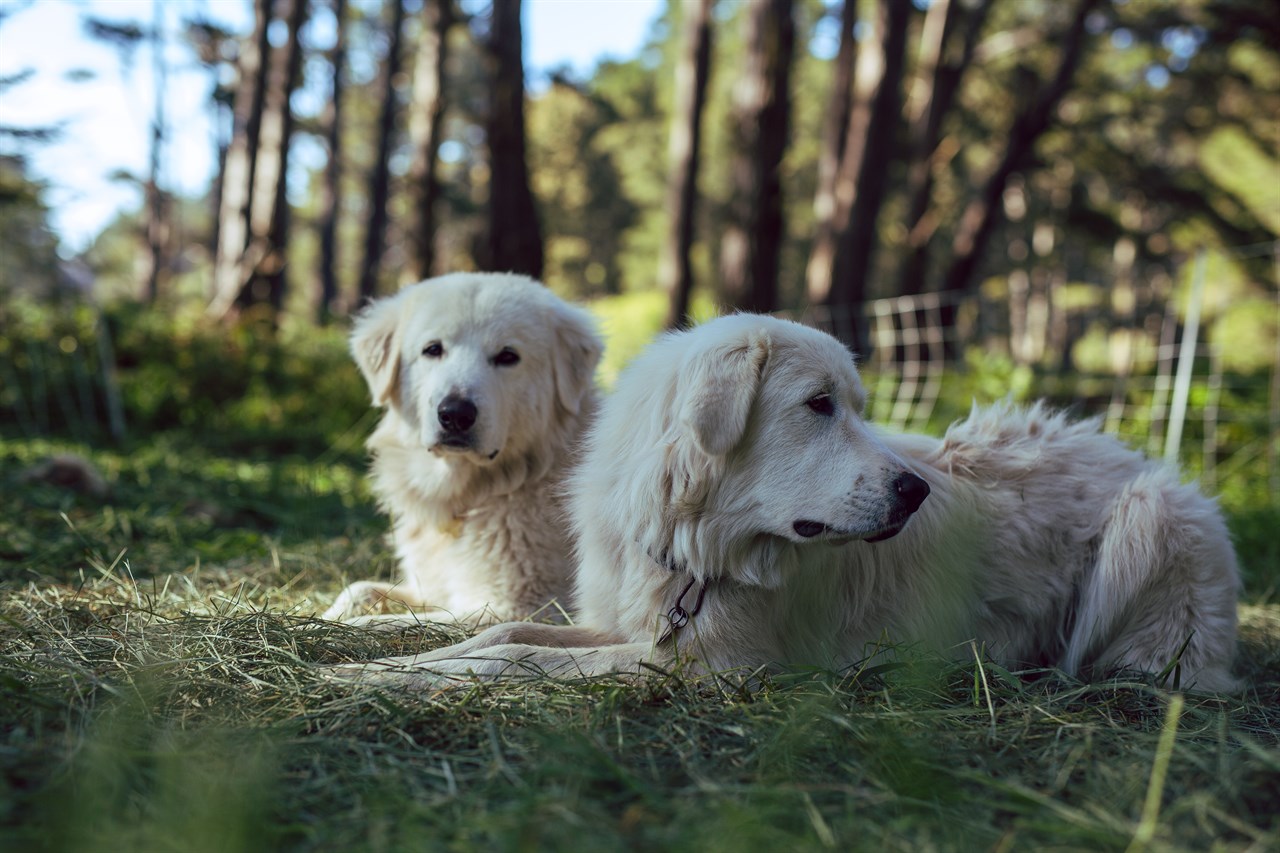The Downsides or Disadvantages of Ownership of the Pyrenean Mountain Dog

While the Pyrenean Mountain Dog, also known as the Great Pyrenees, is a magnificent breed with many positive qualities, it's essential to be aware of the potential downsides or disadvantages associated with ownership. Understanding these aspects can help prospective owners make an informed decision. Here are some of the cons of owning a Great Pyrenees:
Size and Space Requirements
- Large Size: Great Pyrenees are substantial dogs, and their size alone can be a challenge. They take up a considerable amount of space in homes and may not be suitable for small living quarters or apartments.
- Space Needs: They benefit from having access to a secure, spacious yard for exercise and play. Lack of outdoor space can limit their ability to thrive.
Grooming and Shedding
- Heavy Shedding: Great Pyrenees have a thick double coat that sheds seasonally. Expect a significant amount of shedding, especially during the change of seasons, which can be a concern for individuals with allergies or those who prefer a tidy home.
- Regular Grooming: Their coats require regular grooming to prevent matting and manage shedding. Brushing several times a week is necessary to keep their fur in good condition.
Independence and Stubbornness
- Independent Nature: Great Pyrenees can be independent thinkers. They may not always be eager to follow commands and may exhibit stubborn behaviour, which can be challenging for novice dog owners.
Exercise Needs
- Moderate Exercise: While they are not extremely active dogs, Great Pyrenees still require daily exercise and mental stimulation. Neglecting their exercise needs can lead to obesity and behavioural problems.
Protective Instincts
- Overprotectiveness: Their strong protective instincts can sometimes lead to overprotective behaviour, especially around strangers or other animals. Proper socialisation and training are essential to manage this tendency.
Health Concerns
- Health Issues: Like all breeds, Great Pyrenees can be prone to specific health issues, including hip dysplasia, elbow dysplasia, bloat, and heart problems. This may require ongoing veterinary care and potential medical expenses.
Noise Level
- Vocal Nature: They are known for being vocal dogs and may bark to alert their owners to perceived threats. While this can be an asset for protection, it can also lead to noise complaints in close-knit neighbourhoods.
Livestock Guardian Instinct
- Not Always a Pet: Historically, Great Pyrenees were bred as livestock guardians. Their guardian instincts can make them less of a traditional "pet" and more of a working dog. Owners should be prepared to manage these instincts.
Not for Novice Owners
- Experienced Ownership: Great Pyrenees may not be the best choice for novice dog owners. Their independent nature and protective instincts require experienced handling and training.
In conclusion, while Great Pyrenees are beloved for their protective nature, loyalty, and gentle disposition, they come with certain challenges that prospective owners should be prepared for. These challenges include their size, grooming needs, exercise requirements, independent nature, and potential health issues. Responsible ownership involves providing proper care, training, and socialisation to ensure that a Great Pyrenees can be a well-adjusted and happy member of the family.
Pyrenean Mountain Dog puppies for sale
- Find Pyrenean Mountain Dog puppies for sale in ACT
- Find Pyrenean Mountain Dog puppies for sale in NSW
- Find Pyrenean Mountain Dog puppies for sale in NT
- Find Pyrenean Mountain Dog puppies for sale in QLD
- Find Pyrenean Mountain Dog puppies for sale in SA
- Find Pyrenean Mountain Dog puppies for sale in TAS
- Find Pyrenean Mountain Dog puppies for sale in VIC
- Find Pyrenean Mountain Dog puppies for sale in WA